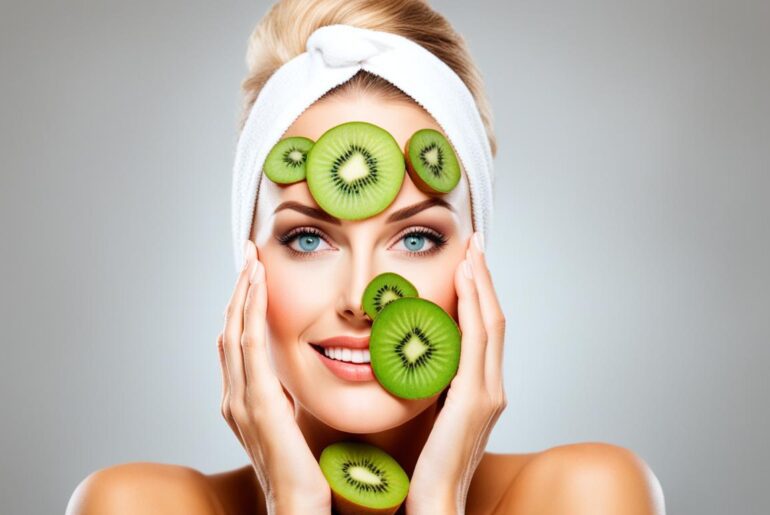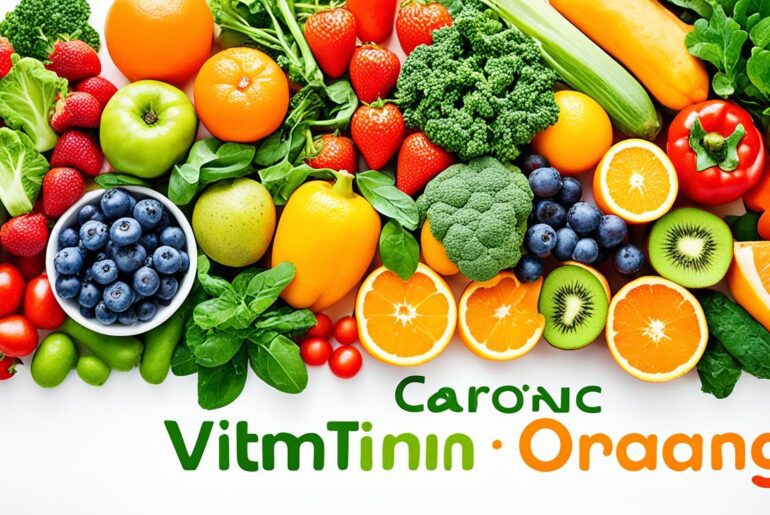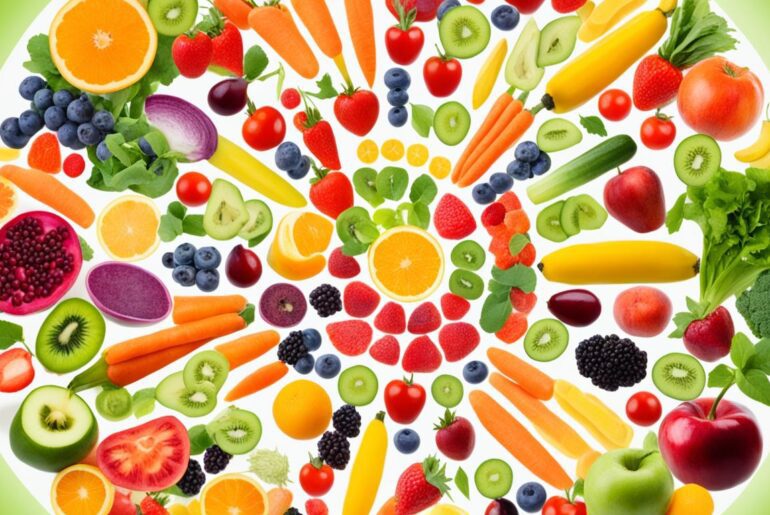When it comes to keeping our skin looking youthful and radiant, we often turn to the latest antiaging skincare products. But have you ever wondered if there might be a simpler solution right in front of us? Could the key to youthful skin actually lie in the essential vitamins we consume?
While it’s no secret that a healthy lifestyle and skincare routine can work wonders for our skin, the role of vitamins in antiaging is often underestimated. Vitamins play a vital role in supporting skin health and combating the signs of aging from within.
Key Takeaways:
- Discover the top vitamins that can help slow down the aging process and promote youthful skin.
- Learn about the best antiaging skincare products enriched with essential vitamins.
- Explore natural antiaging remedies that harness the power of vitamins.
- Understand how specific vitamins can address various skin concerns such as wrinkles, sagging, and hyperpigmentation.
- Consult with a healthcare professional to determine the right supplemental vitamin regimen for your antiaging skincare routine.
Curcumin
Curcumin, the active compound in turmeric, is a potent antioxidant that can help protect against cellular damage. Studies have shown that curcumin has the ability to activate proteins that delay cellular senescence, promoting longevity and healthy aging.
Animal studies have demonstrated the effectiveness of curcumin in combating cellular damage and increasing lifespan. Its antioxidant properties allow it to neutralize harmful free radicals, reducing oxidative stress and inflammation in the body.
To increase your curcumin intake, consider incorporating turmeric into your cooking or taking curcumin supplements. Turmeric is a popular spice used in many cuisines and can be easily added to dishes like curries, stir-fries, and smoothies.
For those who prefer a more concentrated form of curcumin, curcumin supplements are available. These supplements provide a convenient way to ensure you’re getting an adequate amount of curcumin to support your cellular health and overall well-being.
EGCG
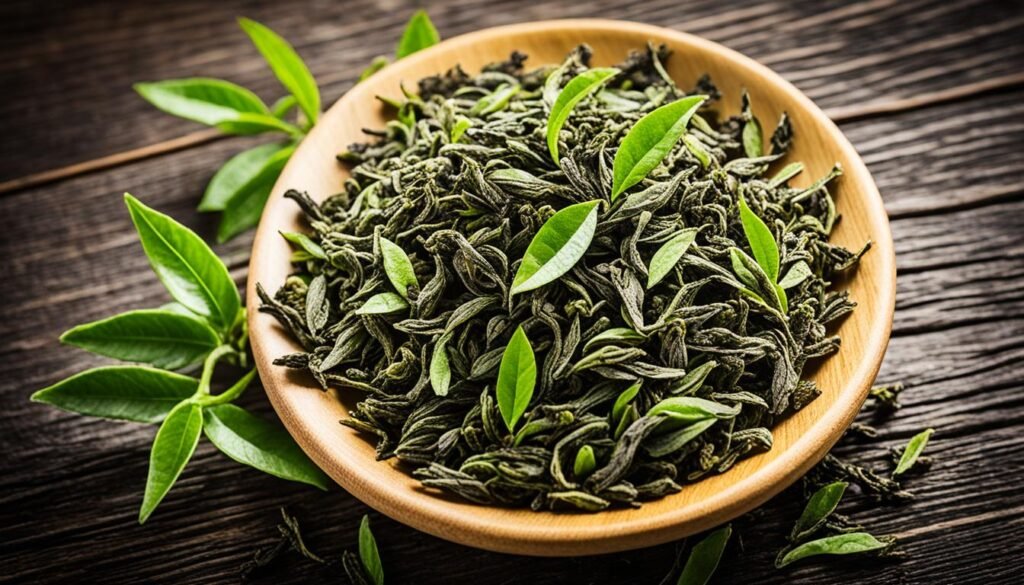
When it comes to natural antiaging remedies, green tea is a powerhouse ingredient. One of its key components, EGCG (Epigallocatechin Gallate), has gained significant attention for its potential benefits in maintaining youthful skin.
EGCG is a polyphenol compound found abundantly in green tea. Its unique properties make it a valuable asset for improving skin health and combating signs of aging. Let’s explore how EGCG can enhance your skincare routine and promote a more youthful appearance.
Boosting Mitochondrial Function for Radiant Skin
Mitochondria are the powerhouses of our cells, playing a vital role in energy production. Over time, these cellular powerhouses can become less efficient, leading to a decline in skin health. However, studies have shown that EGCG can improve mitochondrial function, helping to revive dull and tired-looking skin.
Incorporating green tea or green tea extract supplements into your daily routine can provide a natural source of EGCG, helping you achieve a radiant complexion from within.
Promoting Autophagy: Clearing Out Cellular Waste
Autophagy is the process by which our cells remove damaged or dysfunctional components, promoting overall cellular health. As we age, the efficiency of this process can decline, leading to an accumulation of cellular waste and contributing to the aging process.
EGCG has been shown to induce autophagy, enhancing the cell’s ability to remove these waste materials. By supporting this fundamental cellular process, EGCG can help maintain a youthful appearance and minimize the signs of aging.
Protecting Against UV-Induced Damage
Exposure to ultraviolet (UV) light can result in premature aging, hyperpigmentation, and other skin damage. Fortunately, EGCG has been found to offer protective effects against UV-induced damage.
By incorporating green tea or green tea extract supplements into your skincare routine, you can help reduce the risk of aging skin and hyperpigmentation caused by UV light. EGCG acts as a shield, safeguarding your skin from the harmful effects of the sun.
Benefits of EGCG for Skin
| Benefits | Details |
|---|---|
| Promotes mitochondrial function | Revives dull skin and boosts energy production |
| Induces autophagy | Clears out damaged cellular material for improved skin health |
| Protects against UV-induced damage | Reduces the risk of aging skin and hyperpigmentation caused by UV light |
With its myriad of benefits, incorporating green tea or green tea extract supplements into your skincare routine is a wise choice. Start enjoying the revitalizing effects of EGCG and unlock the power of green tea for healthier, more youthful-looking skin.
Collagen
Collagen, a vital protein for maintaining skin structure, plays a crucial role in keeping our skin smooth, firm, and elastic. However, as we age, the production of collagen decreases, which leads to the development of wrinkles and sagging skin.
To combat these signs of aging, collagen supplements have emerged as a popular solution. Studies have shown that supplementing with collagen can help reduce the appearance of wrinkles and dry skin, resulting in a more youthful complexion.
Collagen supplements offer various benefits for the skin, including improved hydration, enhanced elasticity, and even nail growth. These supplements come in different forms such as powders and capsules, making them convenient and easy to incorporate into your daily routine.
By replenishing the collagen levels in the body, collagen supplements support the skin’s structure, helping it maintain its youthful appearance. Whether you choose to consume collagen through supplements or incorporate collagen-rich foods into your diet, this protein can provide significant benefits for your skin health.
CoQ10
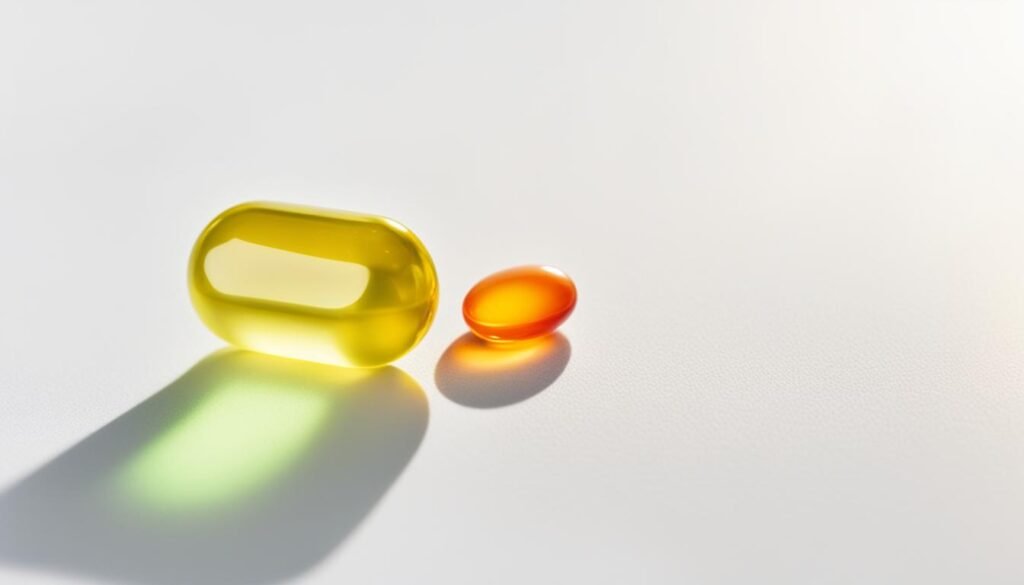
In the quest for healthy aging, the importance of antioxidants cannot be overlooked. And one such antioxidant that plays a vital role in maintaining overall well-being is Coenzyme Q10 (CoQ10). Produced naturally by the body, CoQ10 acts as a powerful shield against oxidative stress and its detrimental effects.
Daily supplementation with CoQ10 has been shown to offer numerous benefits for physical and mental health, ultimately enhancing the quality of life for older adults. Research has revealed that CoQ10 can help slow down the process of physical and mental deterioration, reducing the frequency of hospital visits and improving overall vitality.
CoQ10’s impact on heart health is particularly noteworthy. By improving arterial stiffness, lowering blood pressure, and preventing cholesterol buildup, CoQ10 supports cardiovascular well-being. Its antioxidant properties help protect the heart from oxidative damage and promote optimal functioning.
If you’re looking to support healthy aging and maintain heart health, CoQ10 supplements are readily available in the market. These supplements are a convenient option for obtaining an adequate amount of this vital antioxidant, especially for those who may have reduced natural production of CoQ10 due to aging.
It’s important to note that while CoQ10 supplements can offer significant benefits, it’s always advisable to consult with a healthcare professional before incorporating them into your routine. This ensures that you receive personalized guidance and determine the appropriate dosage for your specific needs.
The Benefits of CoQ10
Let’s take a closer look at the various benefits provided by CoQ10:
| Benefit | Explanation |
|---|---|
| Improved heart health | CoQ10 supports cardiovascular function by reducing arterial stiffness, lowering blood pressure, and preventing cholesterol buildup. |
| Reduced oxidative stress | As a potent antioxidant, CoQ10 helps protect cells from oxidative damage caused by free radicals, ultimately supporting overall health and vitality. |
| Enhanced physical and mental well-being | CoQ10 has been shown to slow down physical and mental deterioration in older adults, leading to an improved quality of life. |
| Support for healthy aging | Supplementing with CoQ10 can help counteract age-related changes in the body and promote optimal functioning as you age. |
With its wide range of positive effects, CoQ10 is a valuable addition to any health and wellness routine. Its antioxidant properties, combined with its ability to support heart health and combat physical and mental decline, make it an essential nutrient for healthy aging.
Nicotinamide riboside and nicotinamide mononucleotide
Nicotinamide riboside (NR) and nicotinamide mononucleotide (NMN) are two compounds that serve as precursors to NAD+, a key molecule involved in energy metabolism and cellular processes. Supplementing with NR and NMN has shown promising potential in restoring NAD+ levels and combating age-associated genetic changes.
Studies have demonstrated that NR and NMN supplementation can lead to increased NAD+ levels in various tissues, including the liver and skeletal muscle. This increase in NAD+ has been associated with numerous benefits, such as improved mitochondrial function and enhanced cellular metabolism.
Research has also shown that NR and NMN supplementation can have a positive impact on age-associated genetic changes. These compounds have been found to activate sirtuins, a class of proteins involved in regulating gene expression. By activating sirtuins, NR and NMN may help protect against age-related genetic damage and promote healthy aging.
Furthermore, NR and NMN have been found to reduce the production of inflammatory proteins and lengthen telomeres, which are protective caps at the ends of chromosomes that shorten as cells age. Maintaining telomere length is crucial for preserving cell function and longevity.
While studies conducted on animals and cells have shown promising results, further research is needed to fully understand the effects of NR and NMN supplementation in humans. Clinical trials are currently ongoing to investigate their potential benefits in age-related conditions, including cognitive decline, metabolic disorders, and cardiovascular diseases.
Crocin
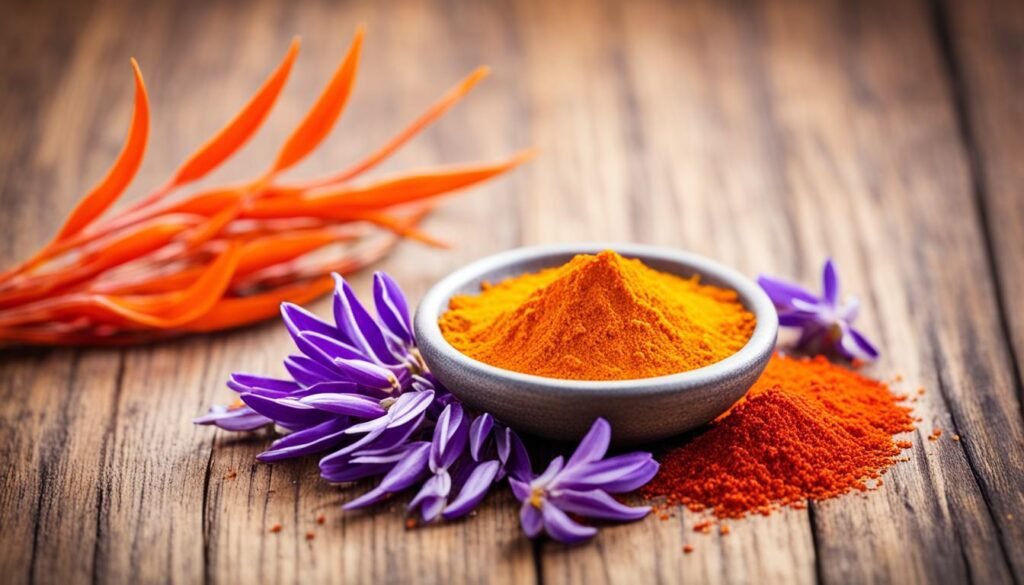
Crocin is a yellow pigment found in saffron, a spice commonly used in cooking and traditional medicine. This natural compound offers a range of health benefits and has been studied for its potential anti-inflammatory effects and protective properties against age-related cognitive decline.
Saffron has been used for centuries in various cultural practices and is known for its vibrant color and distinct flavor. The main active compound in saffron, crocin, has caught the attention of researchers due to its potential therapeutic properties.
Anti-Inflammatory Effects
Crocin has shown promising anti-inflammatory effects in preclinical studies. Chronic inflammation is a key factor in the development and progression of various age-related conditions, including neurodegenerative diseases. Crocin has been found to inhibit inflammation by suppressing the expression of pro-inflammatory molecules and reducing the activity of inflammatory pathways.
Protection against Age-Related Nerve Damage
Age-related nerve damage, also known as neuropathy, can result in pain, tingling, and numbness in the hands and feet. Crocin has demonstrated neuroprotective effects by reducing oxidative stress and inflammation, factors that contribute to nerve damage. Studies have shown that crocin supplementation can help mitigate nerve damage and improve nerve function, offering potential benefits for individuals with age-related neuropathy.
Protection against Cellular Damage
Exposure to ultraviolet (UV) light can cause cellular damage and contribute to premature aging of the skin. Crocin has been found to protect against UV-induced damage by scavenging free radicals and reducing oxidative stress. Additionally, crocin has shown potential in enhancing the skin’s natural defense mechanisms against UV radiation, helping to maintain skin health and prevent photoaging.
Increasing Crocin Intake with Saffron Supplements
Taking a concentrated saffron supplement can be a convenient and cost-effective way to increase crocin intake. These supplements are typically standardized to provide a consistent amount of crocin and other beneficial compounds found in saffron. It’s important to choose high-quality saffron supplements from reputable sources to ensure purity and potency.
| Benefits of Crocin | How to Increase Crocin Intake |
|---|---|
| Anti-inflammatory effects | Take a saffron supplement |
| Protection against age-related nerve damage | Incorporate saffron into cooking |
| Protection against cellular damage caused by UV light | Use saffron-infused skincare products |
Overall, crocin, a key compound in saffron, offers a range of health benefits, including its anti-inflammatory effects, protection against age-related nerve damage, and cellular damage caused by UV light. Adding a saffron supplement to your daily routine can help increase crocin intake and support healthy aging.
Vitamin C
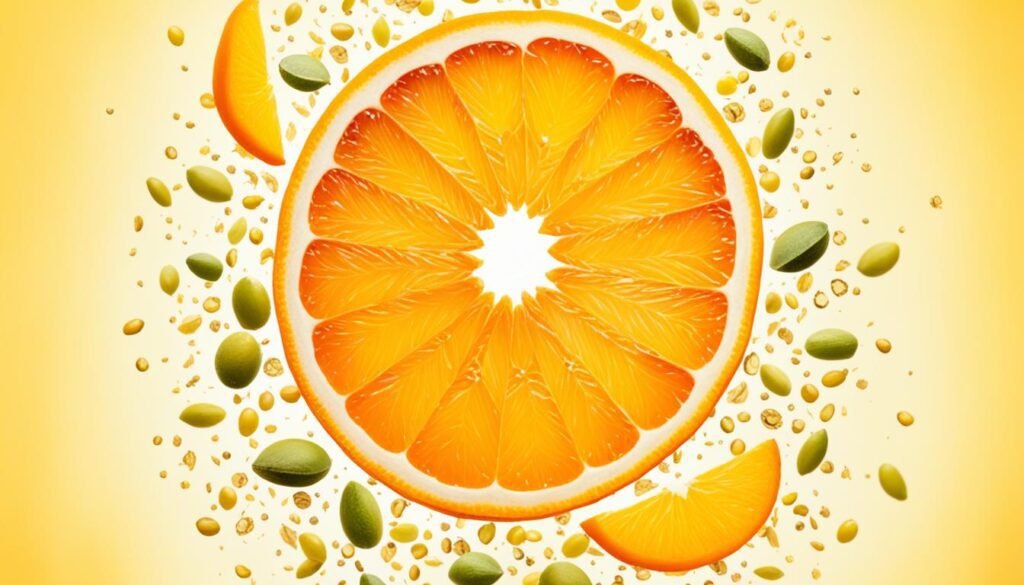
Vitamin C, an essential nutrient for our bodies, is widely known for its numerous health benefits. As a potent antioxidant, it plays a crucial role in protecting our cells from oxidative damage, which can lead to premature aging and various health conditions.
One of the key functions of vitamin C is its ability to support collagen production. Collagen is a protein that provides structure and elasticity to our skin, helping to maintain its youthful appearance. By stimulating collagen synthesis, vitamin C can help reduce the appearance of fine lines, wrinkles, and sagging skin, promoting a more vibrant complexion.
Another important role of vitamin C is its impact on skin hydration. Adequate levels of vitamin C help to strengthen the skin’s barrier function, preventing moisture loss and improving overall hydration. This can lead to smoother, softer skin with a healthy glow.
In addition to its effects on skin health, vitamin C also plays a vital role in supporting immune function. It enhances the production of white blood cells, which are key components of our immune system, helping to defend against infections and illnesses.
While a balanced diet rich in fruits and vegetables is the best way to obtain vitamin C, supplements can provide an additional boost, especially for those who may have difficulty meeting their daily requirements. Vitamin C supplements are available in various forms, such as tablets, capsules, and chewable tablets, making them convenient and easily accessible.
For optimum benefits, it is recommended to follow the recommended daily intake of vitamin C, which varies depending on age, gender, and overall health. Be sure to consult with a healthcare professional before starting any new supplements or making significant changes to your diet.
Vitamin C is an essential nutrient with powerful antioxidant properties that support skin health, collagen production, skin hydration, and immune function. Whether obtained through a healthy diet or supplements, incorporating vitamin C into your skincare routine can contribute to overall healthy aging and a radiant complexion.
Vitamin E

Vitamin E is an important antioxidant that plays a vital role in protecting cell membranes and enzymes from damage. It helps to neutralize harmful free radicals in the body, preventing oxidative stress and promoting overall health. In addition to its antioxidant properties, Vitamin E also supports immune function and helps regulate inflammation.
Vitamin E supplements can offer several benefits for skin health and protection. They can help reduce photodamage caused by harmful UV rays, minimize the appearance of wrinkles, and improve skin texture. By nourishing the skin from within, Vitamin E supplements support the skin’s natural defense mechanisms and promote a youthful appearance.
To ensure optimal intake of Vitamin E, it is important to incorporate natural food sources into your diet. Some excellent sources of Vitamin E include vegetable oils, grains, oats, nuts, and dairy products.
The Benefits of Vitamin E:
- Powerful antioxidant properties that protect against cellular damage
- Supports immune function and helps regulate inflammation
- Reduces photodamage and improves skin texture
- Minimizes the appearance of wrinkles
To reap the full benefits of Vitamin E, consider adding vitamin E supplements to your daily routine. These supplements provide a convenient way to ensure you are getting an adequate amount of this essential nutrient.
Recommended Vitamin E Supplements:
When choosing a Vitamin E supplement, look for products that contain natural tocopherols or mixed tocopherols, which are the active forms of Vitamin E. Avoid synthetic forms and opt for reputable brands that prioritize quality and purity.
| Brand | Product | Key Features |
|---|---|---|
| Nature Made | Vitamin E 400 IU | – Contains natural tocopherols – Supports immune function – Helps protect against oxidative stress |
| Solgar | Vitamin E 400 IU | – Made from natural tocopherols – Promotes healthy skin – Provides antioxidant support |
| Now Foods | Vitamin E-400 | – Mixed tocopherols – Supports cardiovascular health – Protects against free radicals |
Remember to consult with a healthcare professional before starting any new supplements, including Vitamin E, to ensure they are suitable for your specific needs and health condition.
Vitamin K
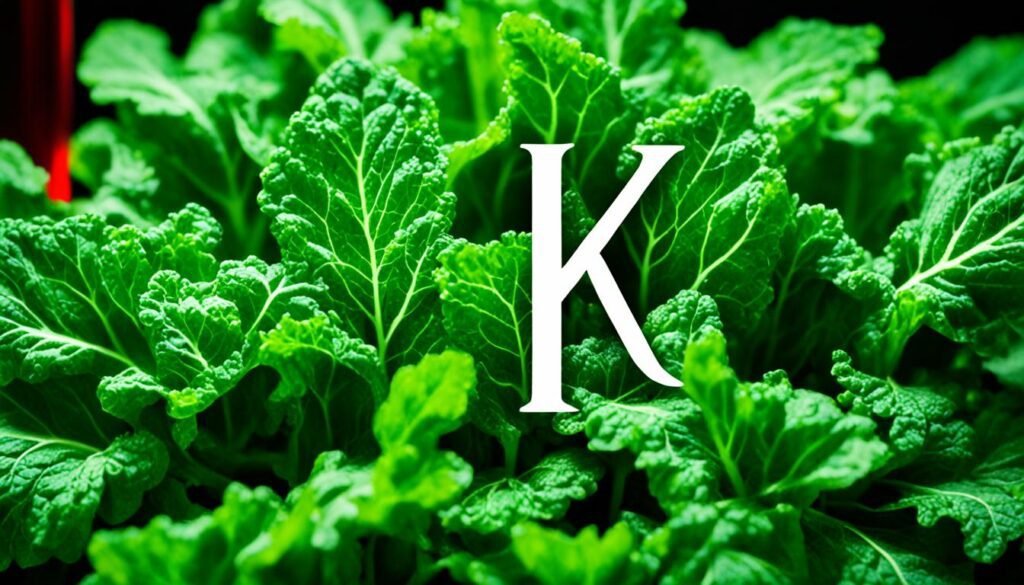
Vitamin K plays a crucial role in maintaining healthy skin. It is essential for various physiological processes in the body, including wound healing and blood clotting. In skincare, vitamin K is known for its potential to improve skin health and promote a youthful appearance.
One of the key functions of vitamin K is its involvement in the blood clotting process. It helps coagulate blood and promotes the formation of blood clots to prevent excessive bleeding. This is particularly important for wound healing, as vitamin K ensures the proper closure of cuts and bruises, allowing the skin to regenerate effectively.
In addition to its role in blood clotting, vitamin K has been found to have potential benefits for skin health. It has antioxidant properties that help protect the skin from oxidative damage caused by factors like UV radiation and environmental pollutants.
Research suggests that vitamin K may also assist in reducing the appearance of dark circles under the eyes, commonly known as under-eye circles or bags. The use of topical vitamin K preparations or skincare products containing vitamin K has shown promising results in improving the appearance of these under-eye discolorations.
While there are skincare products formulated with vitamin K, incorporating vitamin K-rich foods into your diet is an excellent way to support your skin health. Foods rich in vitamin K include leafy greens like kale, spinach, and Swiss chard, as well as cruciferous vegetables such as broccoli and Brussels sprouts. Prunes, another vitamin K-rich food, are also beneficial for the skin.
By including these vitamin K-rich foods in your diet, you can provide your body with the necessary nutrients to support healthy skin and overall well-being. However, it is always advisable to consult with a healthcare professional before making any significant changes to your diet or starting any new supplements.
The Benefits of Vitamin K for Skin Health:
- Promotes wound healing and blood clotting
- Protects the skin from oxidative damage
- Reduces the appearance of dark circles under the eyes
Adding vitamin K-rich foods to your diet can support your skin health and enhance your natural beauty.
Conclusion
Aging is a natural process, but we can take steps to support healthy aging and maintain youthful skin. Incorporating certain vitamins and supplements into our skincare routine can offer a variety of benefits, ranging from reducing signs of aging to protecting against cellular damage. When it comes to antiaging skincare essentials, curcumin, EGCG, collagen, CoQ10, nicotinamide riboside, crocin, vitamin C, and vitamin E are top choices.
Curcumin, found in turmeric, has potent antioxidant properties that defend against cellular damage and delay cellular senescence. EGCG, a polyphenol in green tea, improves mitochondrial function and induces the removal of damaged cellular material. Collagen, a protein crucial for skin structure, can be supplemented to reduce wrinkles and sagging skin. CoQ10, a natural antioxidant, improves overall quality of life and benefits heart health. Nicotinamide riboside and nicotinamide mononucleotide help restore NAD+ levels, which play a central role in aging. Crocin, derived from saffron, protects against age-related nerve damage and inflammation. Lastly, vitamin C and vitamin E, as powerful antioxidants, support skin health and immune function.
Remember, before starting any new supplements or making significant changes to your skincare routine, it’s essential to consult with a healthcare professional. By incorporating these top vitamins for youthful skin into your antiaging skincare routine, you can nourish your skin from within and promote a more youthful appearance.
FAQ
What is curcumin?
Curcumin is the active compound found in turmeric. It has powerful antioxidant effects that can protect against cellular damage and promote longevity.
How can I increase curcumin intake?
You can increase curcumin intake by using turmeric in cooking or taking turmeric or curcumin supplements.
What is EGCG?
EGCG is a polyphenol compound found in green tea. It improves mitochondrial function, induces autophagy, and reduces the risk of aging skin and hyperpigmentation caused by UV light.
How can I increase EGCG intake?
You can increase EGCG intake by drinking green tea or taking green tea extract supplements.
What is collagen?
Collagen is a protein that helps maintain skin structure. Supplementing with collagen can reduce signs of aging such as wrinkles and dry skin.
How can I supplement with collagen?
Collagen supplements are available in various forms like powders and capsules.
What is CoQ10?
CoQ10 is a natural antioxidant produced by the body. Supplementing with CoQ10 can improve overall quality of life, slow physical and mental decline, and benefit heart health.
How can I supplement with CoQ10?
CoQ10 supplements are available to support healthy aging.
What are nicotinamide riboside and nicotinamide mononucleotide?
Nicotinamide riboside (NR) and nicotinamide mononucleotide (NMN) are precursors to NAD+, a compound involved in energy metabolism and cellular processes.
What are the benefits of supplementing with NR and NMN?
Supplementing with NR and NMN may help restore NAD+ levels, reduce inflammatory proteins, and lengthen telomeres, which play a central role in aging. Further research is needed.
What is crocin?
Crocin is a yellow pigment found in saffron. It has several health benefits, including anti-inflammatory effects and protection against age-related cognitive decline.
How can I increase crocin intake?
You can increase crocin intake by taking a concentrated saffron supplement.
What is the role of vitamin C in antiaging skincare?
Vitamin C is a powerful antioxidant that protects cells from oxidative damage. It plays important roles in immune function, collagen production, and overall healthy aging.
How can I increase vitamin C intake?
Vitamin C supplements can improve skin hydration, stimulate collagen production, and enhance immune function.
What is the role of vitamin E in antiaging skincare?
Vitamin E is an important antioxidant that protects cell membranes and enzymes from damage. It is crucial for immune function and helps regulate inflammation.
How can I increase vitamin E intake?
Vitamin E supplements can reduce photodamage, wrinkles, and improve skin texture. Natural sources of vitamin E include vegetable oils, grains, oats, nuts, and dairy products.
What is the role of vitamin K in antiaging skincare?
Vitamin K plays a crucial role in maintaining healthy skin. It helps with wound healing, blood clotting, and overall skin health.
How can I increase vitamin K intake?
You can increase vitamin K intake by consuming vitamin K-rich foods such as leafy greens, broccoli, Brussels sprouts, and prunes.


